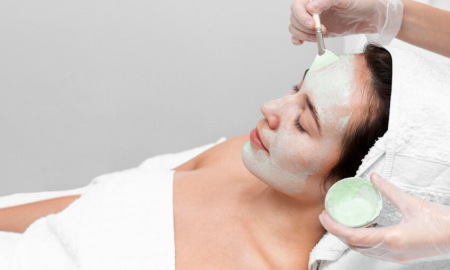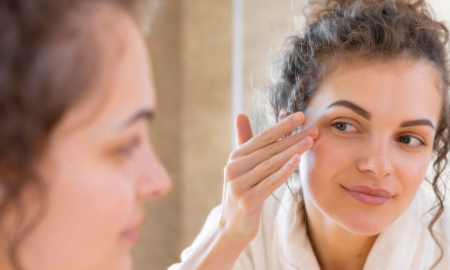
Wellness Tips to Help You Get Rid of Your Winter Blues

Winters can be a tough season not just for our body but also for our mental health. The sun rises later than usual in the winter months, and it sets earlier. This deprives many people of getting proper sunlight. Their time indoors usually outweighs their time outdoors. Living and working in the dark has adverse effects on health, even if you are a person who has no prior mental health issues.
These shorter days and less exposure to sunlight can lead to mood changes, such as feeling sad or more down than usual. These mood swings that make you feel lethargic and overall down, or more unhappy, are termed Winter Blues. The medical name for this winter depression is seasonal affective disorder (SAD). SAD is a severe form of winter blues. It’s a form of depression caused by changes in seasons. Winter may cause winter-onset SAD.

Keenan Constance/ Pexles | After every night, there is a brighter day waiting for you
Common symptoms of winter blues
Here are some symptoms to help you detect your winter blues:
- Feeling depressed
- Feeling hopeless
- Fatigue
- Trouble sleeping, insomnia, or oversleeping
- Change in appetite or weight
- Difficulty concentrating
- Drawing away from tasks or activities you once enjoyed
- Irritability
- Having low energy
- Feeling agitated
- Having frequent thoughts of self or suicide
- Lack of motivation to do daily tasks or get out of bed
- Drawing away from your circle or social interactions
- Spending two or more days in bed
These symptoms often resolve with the arrival of the spring and summer months.
Tips to help beat the winter blues
Winter blues can affect all aspects of your life, from work to personal relationships. Here are a few tips to help you beat this:
Soak in the sunlight

Jackson David/ Pexels | Being happy never goes out of style
Sunlight therapy is considered the first step to help you cope with winter blues. Sunlight contains an unlimited source of Vitamin D, which is essential for circadian rhythm regulations and can boost your energy level, which subsequently lifts your mood.
Sit in the sun and give yourself every opportunity to soak in that morning sunlight. You can place your exercise equipment near a window, go out for daily walks or buy yourself a cup of coffee. You can also move your work desk near a window. Being in the sunlight also helps your body balance the serotonin activity and increases melatonin production, improving your emotional state.
Light therapy
If you cannot find relief from low-level interventions, you can sign yourself up for light therapy. In this form of treatment, the patient is settled in front of a lightbox for 20 to 60 minutes, giving out nearly 10,000 lux of light. Doctors recommend this procedure to be done in early fall until spring.
Eat a balanced diet

THE 5TH/ Pexels | A good life is a collection of happy moments
Eating a balanced diet that hits all the checkpoints in your diet chart can promote better health and a better mood for the day. Complex carbohydrates such as whole grains and freshly produced organic food products can boost your energy levels and help you get out of your bed. Try eating foods rich in Vitamin D, such as fish, eggs, and mushrooms, and add more nutritious vegetables such as broccoli, kale, carrots.
Exercise
Physical activities and exercise have been proven to have miraculous effects on your overall health. Exercise can make you feel good about yourself by optimizing your physical condition, thus helping you beat the winter blues.
More in Health & Fitness
-
`
Unveil Your Festive Radiance With Expert-Approved In-Salon Treatments
Are you ready to embrace the upcoming festive season with a radiant glow that turns heads and steals the spotlight? While...
March 10, 2024 -
`
The Key Nutrients For Your Health & Where You Can Find Them
More than ever before, today it is easy to fall into dietary habits that neglect the fundamental nutrients our bodies crave...
March 3, 2024 -
`
Everything You Need to Know About Malar Edema
In the quest for youthful radiance and the perfect cheek contour, many of us have ventured into the realm of cosmetic...
February 19, 2024 -
`
Make The Most Out of Your Mexico City Trip By Trying These ‘Can’t-Miss’ Experiences
Mexico City, alive with history, art, and gastronomy, invites travelers to immerse themselves in its vibrant spirit. If you find yourself...
February 15, 2024 -
`
Unlock the Secrets of Your Skin: A Comprehensive Guide to Understanding Your Skin Type
Embarking on a journey towards healthier, happier skin begins with unraveling the mysteries of your unique skin type. Beyond the one-size-fits-all...
February 11, 2024 -
`
The Pros & Cons of Treadmills and Cross Trainer Aerobic Gym Equipment
Aerobic exercises are the cornerstone of any fitness regimen. W, and when it comes to indoor equipment, the treadmill and cross...
February 3, 2024 -
`
Exploring the Global Hotspots for Cosmetic Transformations
Have you ever found yourself lost in the mesmerizing world of plastic surgery transformations late at night? Those videos showcasing Turkish...
January 26, 2024 -
`
Hate the Cold New York City Weather? Check Out These Warm Getaways
Are you tired of the chilly weather and eager to soak up some sunshine without breaking the bank? Well, fret not!...
January 16, 2024 -
`
Mineral Sunscreen & Chemical: What is the Difference?
Imagine you are on a serene beach. The sun is shining, and you are about to apply sunscreen. You reach for...
January 10, 2024















You must be logged in to post a comment Login